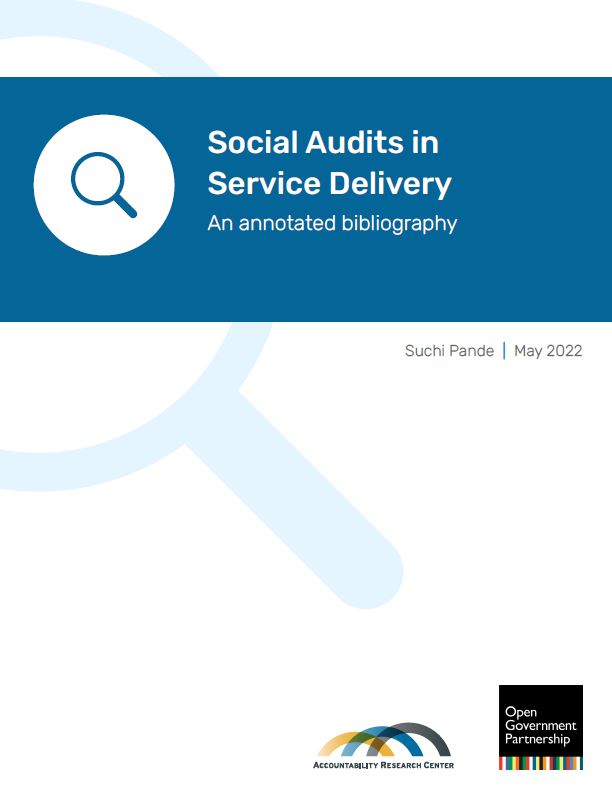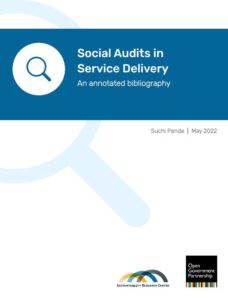
Social Audits in Service Delivery: An Annotated Bibliography
Date: May 2022
Author(s): Suchi Pande
Publication type: Annotated Bibliography
Published by: Open Government Partnership and Accountability Research Center
This annotated bibliography identifies sources on how social audits work and their main benefits. It prioritizes empirical evidence over theoretical literature, and covers the last fifteen years.
Social audits are a tool to hold service providers accountable. For the purpose of this review, they must include three elements:
- Third-party assessment of access and quality of services
- Third-party convenors who create enabling environments for public deliberation, and capacity building, information gathering, and assessment
- Presentation of findings in a public forum for collective deliberation.
This review includes 28 sources focused on international aid projects or national programs. Sixteen are peer-reviewed articles and 12 are grey literature including working papers, evaluation reports, toolkits, and social audits. Most (17 out of 28) are from South Asia (Bangladesh, India, and Nepal).
This paper is part of the background research for the Skeptic’s Guide to Open Government (2022 Edition).

Suchi Pande is a scholar in residence at the Accountability Research Center (ARC). She holds a PhD in Development Studies from the Institute of Development Studies, University of Sussex. Her doctoral research focused on the grassroots struggle for a national Right to Information law in India, and the role of “public audits” in implementing India’s Right to Work law. Before joining ARC, Suchi was associated with India’s National Campaign for People’s Right to Information, and the Rajasthan based Right to Information and Work campaign.
